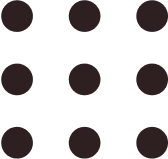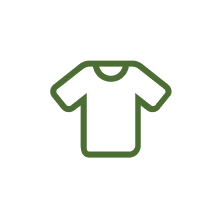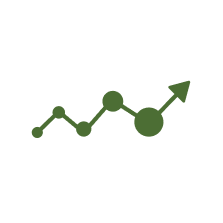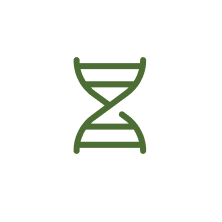
 By John Miller
By John Miller
SAB Director, Product Technologist, Researcher
It never ceases to amaze me the way certain nutritional things seem to come out of nowhere every year or so and promise answers to questions you didn’t even know you had. And every time a whole bunch of internet folks (often the same ones each time) get on its bandwagon promoting it for a wide array of amazing things.
To me, collagen protein fits that descriptor perfectly. There seems to be hundreds of products where few to none existed before. That always makes me wonder. What is it and why would I want it? Is there some new magic about it? Is there some previously unknown component or exciting new research that drives all this interest?
Well, let’s take a look at this stuff and then you decide.
What is Collagen? Collagen is a “connective tissue” material in your body. It’s found in your bones, joints, tendons, ligaments, skin, hair and fingernails. It sort of holds everything together, providing flexibility and elasticity.
The word “collagen” is derived from the Greek word “kólla” meaning “glue.” It refers to a time when boiling the connective tissue or the hide of animals was the process by which glue was made. You might remember the old folk tale about sending the broken down old farm horses to the glue factory when they could no longer work. It was actually more truth than tale. Essentially the same process is used today to extract the collagen; they just don’t make glue out of it anymore.
There are (currently) 28 different types of collagen that we know of. They are divided into a few different groups based upon the structure they are involved in. The 5 most common are:
Type I – from skin, tendons, organs and bone.
Type II – from cartilage
Type III – from organs such as in the liver or lymphatic system
Type IV – from the membranes between the skin and the underlying tissue
Type V – from cell surfaces, hair and placenta
What is collagen protein? Collagen protein is an animal derived protein. It is literally the protein portion of collagen. In our body it is the primary component of all tissues including skin, the main structural protein of bone, cartilage and tendons. It actually accounts for 25 to 30% of the total protein content within the human body. It is synthesized in the body primarily from a group of four (4) amino acids glycine, proline, hydroxyproline and alanine, plus vitamin C, zinc and copper and the action of several enzymes.
Where do collagen proteins come from? The vast majority of collagen protein on the market comes from the skin, connective tissues (cartilage, tendons, and ligaments), hair and bones of animals. Some comes from eggshell membrane and chicken feet and even fish skin. These sources are usually considered the waste products of the animal based food industry. That doesn’t make them bad, but it is worth knowing.
Why would I want collagen protein? As its name seems to tell us, collagen protein is about protein. As we all know, or should know anyway, high quality, complete dietary protein is important to obtain every day. Proteins are about the amino acids they contain, the building blocks of life the protein provides the body. Taking a close look at the amino acid content of a protein can tell you a lot about its potential value.
Collagen, like gelatin, is a nutritionally incomplete protein (its protein quality score, PDCAAS = 0). It is missing at least one of the essential amino acids; tryptophan. The body needs tryptophan for normal growth and development, especially for infants, and nitrogen balance in adults.
What is nitrogen balance and why do you care? Here’s a quick comment on that from an old, but still valid reference from the Journal of American Medical Association (JAMA)2
“Studies on human subjects have repeatedly shown that, if any one of the essential amino acids is lacking, the others are poorly utilized or may be excreted with a resulting “negative nitrogen balance.” This phenomenon explains the “poor biologic value” of certain dietary proteins, such as gelatin, which is low in tryptophan,”
Tryptophan is also the essential amino acid the body needs to produce serotonin and melatonin; critical for sleep and mood stability.3
Collagen protein is nutritionally imbalanced, with an overabundance of some amino acids and an absence or near absence of others. Here are a few examples of what that means;
- We all know that there are 22 amino acids delivered in every NeoLife protein product. In contrast most collagen proteins only list values for 16 -18.
- The single amino acid glycine is the dominant amino acid in collagen and alone can account for up to 35% of the total content.
- Collagen proteins contain little or no:
- cysteine – important for glutathione production.
- cystine – closely related to cysteine, involved in immune cell functions.
- glutamine – important for recovery from injury, protection during chemotherapy or radiation
- asparagine – required for brain development and function
- Though promoted by some companies for muscle building, collagen proteins are relatively low in muscle building branch chain amino acids (BCAA’s).
So where does this leave us? There is no doubt that getting all the amino acids you need each day is fundamental to health. It is also true that certain amino acids play different roles in the body, either individually or synergistically with others. Collagen, because it is a protein, contains some amino acids. But it is also terribly imbalanced, at least for humans, missing some amino acids, while delivering very low levels of others and an overabundance of a few.
There is scant scientific evidence to support benefits of ingesting collagen protein. While the amino acids in the protein are absorbed, they do not specially reassemble as collagen in our body and tissues. Eating collagen will not make more new collagen in the body.
So the question here really boils down to why? Why would I want to take a protein supplement that does not fulfill my body’s overall protein and amino acid needs? And why would I want those amino acids to come from something typically thought of as the leftovers of the food industry?
Those are personal questions that each of us must answer for ourselves. Especially when you consider that clinically tested and proven NeoLifeShake has none of those shortcomings. Indeed, it provides 22 amino acids involved in human nutrition, from the highest quality, most biologically functional sources in the world.
So, you make your decision. I’ve already made mine.
Be well, John
References:
- Collagen Type II: Uses, Side Effects, Interactions, Dosage, and Warning. https://www.webmd.com/vitamins/ai/ingredientmono-714/collagen-type-ii. Accessed October 11, 2019.
- Nitrogen balance. JAMA. 1947;133(4):247-247. doi:10.1001/jama.1947.02880040033010
- Tryptophan: MedlinePlus Medical Encyclopedia. https://medlineplus.gov/ency/article/002332.htm. Accessed October 11, 2019.
- Shop and save 15-30% on all orders
- Get free products when you refer friends
- Win big cash and prizes as you achieve your health goals
What if you could get a little wealthier every time you helped someone get healthier?
- Earn a spare-time, part-time, or full-time income when you share NeoLife
- Decide when you work and how you work
- Join our movement to end the trend
















